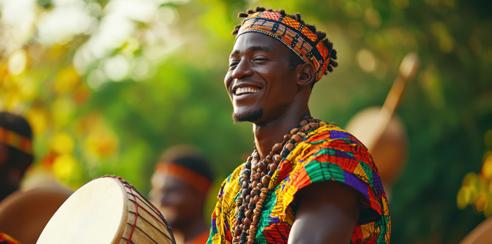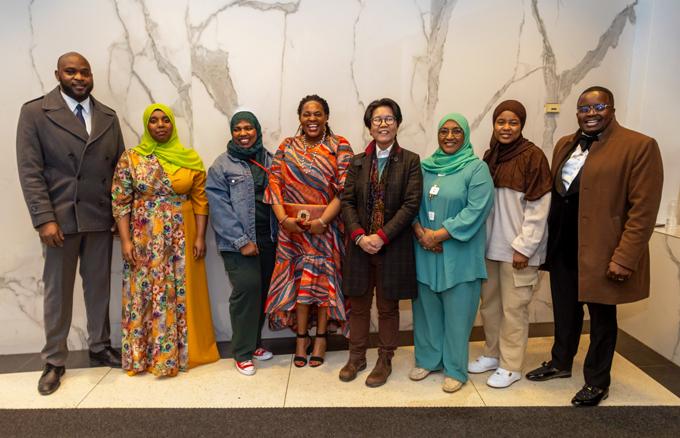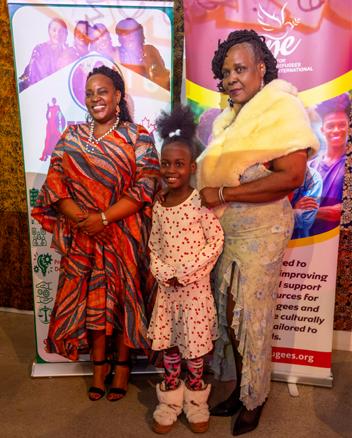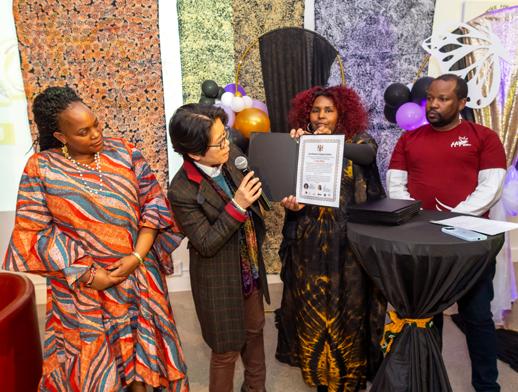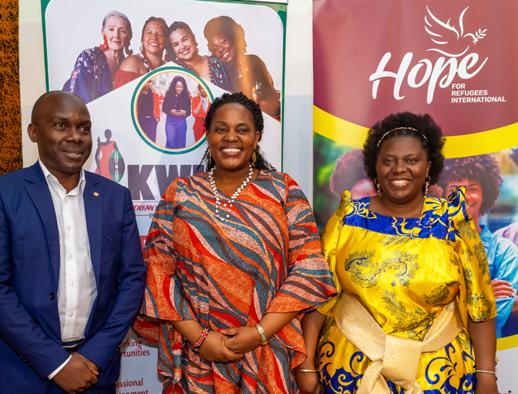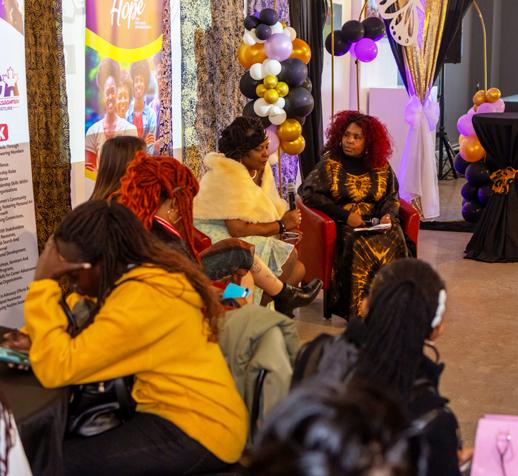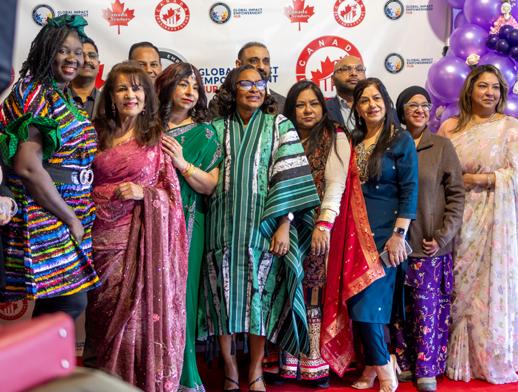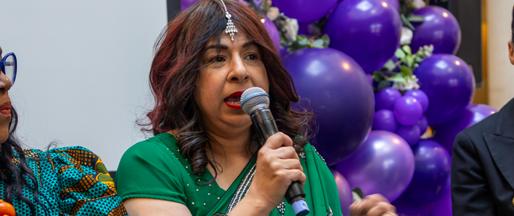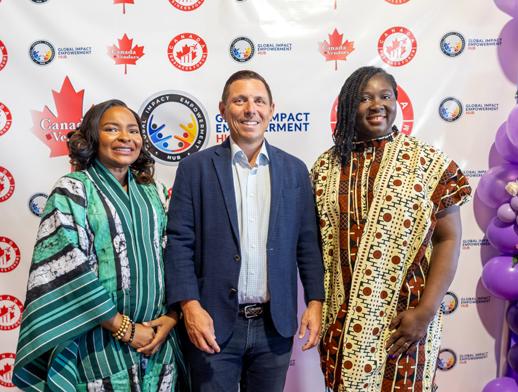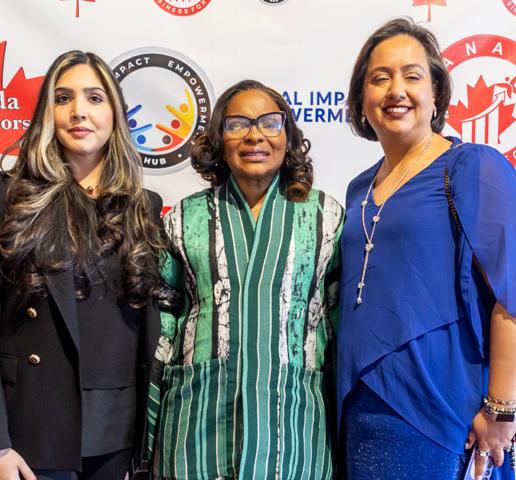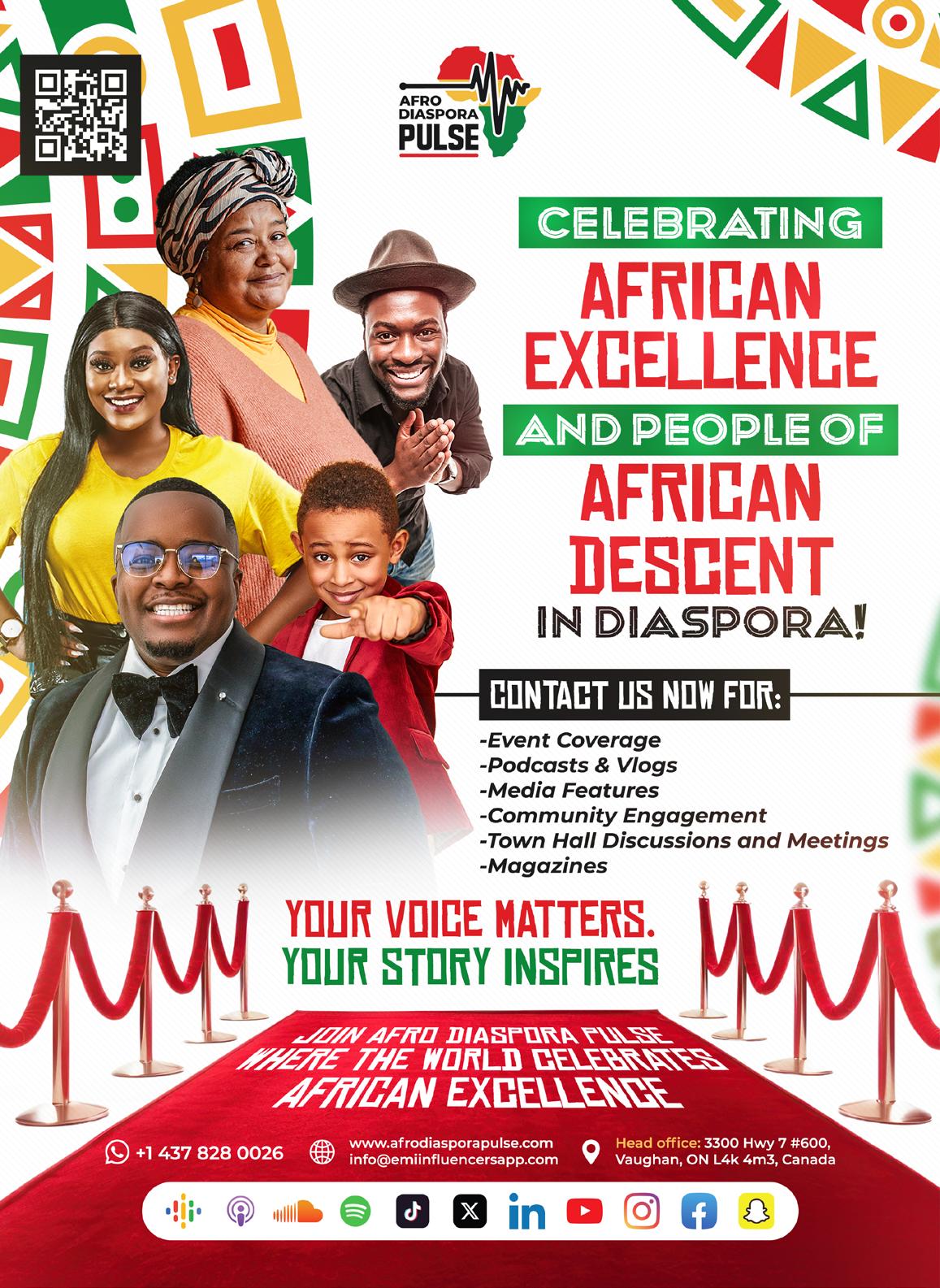




Sports Spotlight
The Power of Play and Progress
Women in Leadership
Shaping Change, Breaking Barriers
Science & Innovation
Powering Progress in the Afro Diaspora
Art, Culture & Advocacy
Anique Jordan: Art, Activism, and Cultural Reclamation Across the Diaspora
Literary Spotlight
Voices of the Afro Diaspora Shaping the Future
Health & Wellness
Dr. Cheyenne Bryant: Transforming Lives Through Psychology, Coaching, and Community Empowerment
Business & Entrepreneurship
Ayodeji Lawrence: Transforming Lives Through Counseling & Holistic Healing
Beauty & Business Innovation
Empowering the Future of the Beauty Industry
Music Spotlight
Zakisha Brown: A Journey of Music, Identity & Legacy: Zakisha Brown’s Transformation
Business And Entrepreneur
Gloria Babarinde: Elevating African Narratives Through Media & Communications
Education & Advocacy
Sherron Grant: Elevating African Narratives Through Media & Communications
Business & Leadership
Emmanuel Babatunde Adebola – Visionary in Tech, Consulting & Diaspora Empowerment
Leadership and Public Service
Shaping Communities and Empowering Change
Black Women in History
Honoring Legacy, Power, and Progress
Travel & Heritage
Exploring the Diaspora’s Cultural Footprints
Women & Wealth
Empowering Financial Freedom Across Generations
Sustainability and The Future
Building a Greener Tomorrow
Community Leaders
Mohamed A. Doli: Redefining Success Through Identity and Justice
National Days
April Independence Spotlights: Celebrating The Spirit Of Africa
Special April Focus
April Observances: A Month for Awareness, Empowerment, and Action



April is more than just a month of awareness—it’s also a time to celebrate the unifying power of sports. Across continents, sports have long been a force for change, resilience, and empowerment, particularly within African and Caribbean communities.
April 6 marks the International Day of Sport for Development and Peace, a day that recognizes the impact sports can have on promoting inclusion, equality, and growth. From grassroots initiatives to professional leagues, sports continue to shape lives, break barriers, and foster global connections.
From the legendary strides of Ethiopia’s Abebe Bikila to the global stardom of Serena Williams and Usain Bolt, athletes of African descent have consistently shattered records and stereotypes. These sports figures are not only champions on the field but also powerful advocates for education, social justice, and youth empowerment.
In many African and Caribbean communities, sports serve as a critical outlet for youth. Local football clubs, track meets, and basketball courts become platforms where young people develop
discipline, teamwork, and leadership. Nonprofits and grassroots organizations are increasingly using sports as tools for development—providing mentorship, life skills training, and even academic support.
April is also a great time to spotlight the growing presence and power of women in sports. From Africa’s rising female football stars to Caribbean netball and track legends, women continue to redefine what it means to compete and lead.
Participation in sports promotes physical health, stress relief, and mental well-being. As we also observe Stress Awareness Month, it’s important to recognize the role of regular physical activity in supporting emotional and psychological health.
With major global events like the 2024 Olympics on the horizon and the expansion of African sports leagues, the momentum is strong. Let’s continue to support and invest in sports as tools for personal and community transformation.
Sports inspire, unite, and empower. As we celebrate athletes, coaches, and everyday heroes in sports, let’s remember that every game played is a step toward progress.


April is not only a month of awareness—it’s a celebration of resilience, courage, and transformation. In this spirit, we shine a spotlight on Women in Leadership, honoring the remarkable women who are redefining power and purpose across sectors. From boardrooms to parliaments, classrooms to community centers, women—especially women of African and Caribbean descent—are rising as trailblazers, thought leaders, and changemakers. Their leadership is not only transforming systems but also inspiring future generations to lead with confidence and conviction.
Representation matters. When women lead, policies become more inclusive, businesses more innovative, and communities more empowered. From Ngozi Okonjo-Iweala, Director-General of the WTO, to Mia Mottley, Prime Minister of Barbados, African and Caribbean women are proving that leadership grounded in empathy and excellence has global impact. BREAKING THROUGH BARRIERS
Despite progress, women continue to face systemic barriers—unequal

pay, limited access to leadership roles, and underrepresentation in key decision-making spaces. The call for gender equity remains urgent. Leadership isn’t just about occupying space—it’s about transforming it to ensure equity, inclusion, and justice for all.
Women in leadership often lead with a community-first approach— prioritizing education, healthcare, economic empowerment, and social equity. From grassroots organizers to CEOs, their leadership style is often collaborative, compassionate, and rooted in lived experience.
One of the most powerful aspects of female leadership is the commitment to mentoring others. Across industries, women leaders are investing in the next generation— particularly in uplifting young girls to dream big, lead boldly, and challenge the status quo.
As we honor women leaders this April, let’s also commit to building
systems that support their rise. Equity in leadership is not just a women’s issue—it’s a societal imperative.
When women lead, everyone benefits. Let’s continue to amplify, support, and celebrate women in leadership—not just this month, but every day.



Innovation is the engine of progress—and science is its fuel. Across the globe, members of the African and Caribbean diaspora are at the forefront of groundbreaking discoveries, tech solutions, and sustainable development efforts. This April, we celebrate the thinkers, creators, and disruptors using science and innovation to build a better world.
Historically, Black innovators have made major contributions to science—often without recognition. From George Washington Carver’s agricultural advances to Dr. Marie Maynard Daly, the first Black woman in the U.S. to earn a PhD in chemistry, our history is rich with brilliance.
Today, that legacy continues with leaders like Dr. Sian Proctor, the first Black woman to pilot a spacecraft, and Dr. Oluyinka Olutoye, a Nigerian-born pediatric surgeon making waves in medical science. These pioneers are not just breaking glass ceilings—they’re building new foundations.
Across Africa and the diaspora, science and tech innovation are being used to solve real-world problems:
• Health tech in Ghana and Nigeria is improving maternal care and diagnostics.
• Renewable energy startups across the Caribbean are reducing reliance on imported fossil fuels.


• Agritech innovations are transforming food security and farming practices in rural communities. This wave of innovation reflects a shift from consumers to creators— where Black communities are leading the charge in designing solutions that work for us.
THE FUTURE IS OURS TO SHAPE Science and innovation aren’t just about technology—they’re about imagination, resilience, and justice. By investing in education, celebrating our contributions, and building inclusive systems, we ensure the next chapter of innovation includes everyone.
Access to science, tech, engineering, and math (STEM) education remains key. Programs that expose youth in underserved communities to coding, robotics, and AI are planting seeds for long-term empowerment and equity in high-paying fields.
From space exploration to climate solutions, the Afro diaspora is not just participating—we’re leading. The future is bright, and it’s ours to innovate.
Anique Jordan is an accomplished artist, curator, writer, educator, and entrepreneur whose work bridges Black cultural narratives and community empowerment. Rooted in international development, Anique’s journey evolved from economic growth to a deeper exploration of the intangible elements that bind Black communities together, including oral traditions, spiritual practices, and coded languages.
Anique’s career trajectory shifted as she recognized that cultural expressions, rather than economic structures, held the true power of resilience. Her artistic endeavors amplify Black histories and voices, challenging traditional frameworks that prioritize material commodities. Through her work, Anique highlights the overlooked cultural expressions of Black communities both in Canada and globally.
A significant achievement in Anique’s career was co-curating Every.Now. Then: Reframing Nationhood, the largest critical response to Canada’s sesquicentennial at the Art Gallery of Ontario. She also created exhibitions in Scarborough and Jane & Finch— historically underrepresented communities in Toronto’s art scene.
Anique founded Black Wimmin Artists, a platform celebrating Black women creators, and organized The
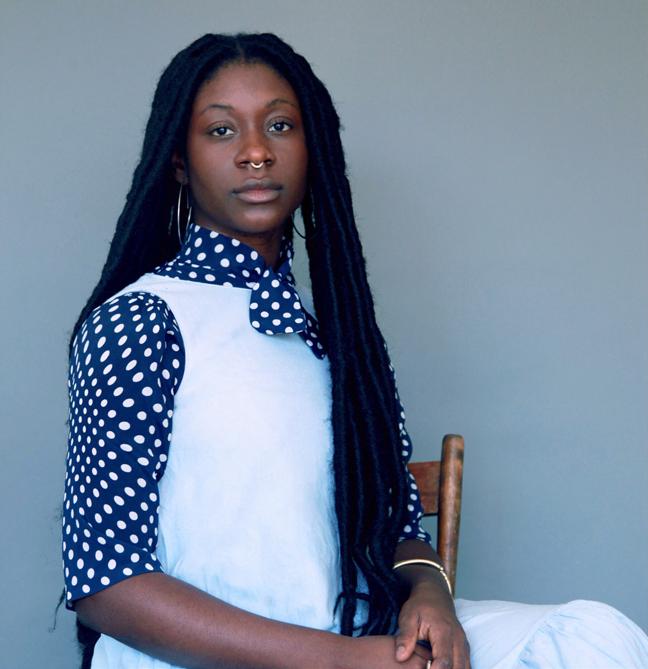
Feast: A Gathering of 100 Black Wimmin, a transformative event for collective dialogue and creative exchange.
Additionally, her public art projects, such as Three-Thirty at the CONTACT Photography Festival, have made a significant impact. Her book Underbelly gained international recognition, touring as one of The Photobook Museum’s Photography Books of the Year. Her inclusion in the ‘Silverlist’ of emerging photographers highlights her growing influence.
Anique’s work engages deeply with the African diaspora, focusing on
African religions, mythologies, and movements that challenge colonial frameworks. She uplifts these practices, ensuring future generations reclaim and engage with their cultural heritage.
Anique’s future projects include her first major solo exhibition and expanding Underbelly’s reach globally. As an educator at Parsons School of Design, she continues mentoring young artists, solidifying her legacy of cultural reclamation and resistance through art.

LITERARY SPOTLIGHT

In every chapter of history, literature has been a powerful force for change. This April, we celebrate the literary giants of the Afro Diaspora— authors, poets, and playwrights who use their words to inspire, educate, and challenge the world. Their stories not only reflect our past but also shape our collective future.
Storytelling has always been an essential part of African and Caribbean cultures, from oral traditions to written works. Authors in the Afro Diaspora continue to use literature as a tool for resistance, resilience, and reclaiming identity. Writers like Chimamanda Ngozi Adichie, with her poignant exploration of feminism and postcolonialism in Americanah, and Marlon James, whose A Brief History of Seven Killings reimagines
Jamaican history, are helping global readers engage with the complexities of identity, power, and belonging.
While established authors continue to captivate readers worldwide, a new generation of writers is emerging, bringing fresh perspectives and voices to the literary world. Young authors like Yaa Gyasi (author of Homegoing) and Tomi Adeyemi (author of Children of Blood and Bone) are telling stories that fuse magical realism, historical fiction, and cultural exploration. Their works resonate deeply with readers seeking narratives that reflect their own experiences.
Literature provides a space for dialogue about the pressing issues of our time—race, justice, identity, and equality. Writers from the Afro
Diaspora have long been at the forefront of these conversations. Works by James Baldwin, Toni Morrison, and Zora Neale Hurston continue to shape discussions on race and identity, inspiring generations of readers to engage with social justice issues.
As we celebrate literary achievements, we also recognize the importance of diverse voices in today’s literary scene. Afro Diaspora authors are not just telling their stories—they are contributing to a global conversation about who we are and where we’re headed.
This April, let us immerse ourselves in the richness of Afro Diaspora literature—where every story tells of struggle, triumph, and the promise of a brighter tomorrow.

Dr. Cheyenne Bryant is a renowned psychologist, life coach, speaker, and producer based in Los Angeles. Her transformative approach to mental health and self-improvement has influenced countless lives globally. As the producer of MTV’s Emmy-nominated Teen Mom Family Reunion, Dr. Bryant empowers individuals with tools for healing and success, extending her impact beyond television.
Dr. Bryant is an acclaimed author, recognized in SUCCESS Magazine’s Top 20 and featured in Forbes, Oprah Magazine, HuffPost, and USA Today. She was honored with the first-ever NAACP Square street dedication and has an official holiday named after her in Atlanta. She also serves as President of NAACP Branch #1069, advocating for social justice and equity.

Dr. Bryant’s career is rooted in a passion for mental wellness and empowerment. Inspired by thought leaders like Oprah Winfrey and Iyanla Vanzant, she earned a Doctorate in Psychology and became a certified life coach. She helps individuals overcome challenges through customized strategies that promote selfawareness and balance. Her bestselling book Mental Detox has been pivotal in personal transformation, and she is working on an interactive workbook and a new book set for release in 2026.
Dr. Bryant plays a key role in strengthening trade relations between Nigeria and the U.S., collaborating with the Port of Los Angeles and the Warri

Kingdom. Her initiatives focus on infrastructure, employment, and economic stability in Nigeria.
Dr. Bryant is also a dedicated activist. She founded the Dr. Bryant Foundation, which provides resources to underserved communities. Her foundation supports youth education, offering school materials, computers, and vital resources to families in need.
Dr. Bryant continues to foster change through education and wellness. The Dr. Bryant Institute offers an online life coaching certification program. In 2025, she will host a wellness retreat focused on self-care and personal development, further cementing her legacy of empowerment and transformation.




Ayodeji Lawrence, a Counselor, Coach, and Therapist, blends her analytical background with deep empathy to guide individuals toward healing and self-discovery. Her career began in Quality Assurance at SystemSpecs Group, but her true calling emerged after the birth of her son, leading her to explore entrepreneurial ventures and support for underprivileged women. In 2019, she formally embraced her passion for counseling and therapy, impacting many lives along the way.
As the co-founder of EL-Cubed International Limited, Ayodeji has empowered individuals to achieve emotional and mental balance. She founded the Journey To Wholeness initiative, which provides free therapy and coaching sessions to those in need. Over the past four years, more than 200 individuals have benefited from this initiative, supported by individual and corporate sponsorships.
Ayodeji developed the Balanced ME™ Toolbox, a holistic framework designed to help individuals achieve emotional and mental equilibrium. This innovative tool integrates traditional therapy with practical, everyday strategies for personal growth and healing.
Ayodeji is a leading advocate for mental wellness, integrating faith, psychology, and practical tools in her work. Through workshops, coaching, and digital content, she makes mental health accessible and engaging, especially in Africa, where she helps destigmatize conversations around mental health and promotes emotional resilience.
Ayodeji has also worked to bridge cultural gaps, teaching Yoruba to members of the African diaspora, helping them reconnect with their heritage.
Ayodeji aims to expand ELCubed International and the Balanced ME™ brand, reaching more individuals, families, and communities globally. Her unwavering dedication is transforming lives and shaping a movement of healing, balance, and empowerment.
CONTACT INFORMATION
�� +234 818 466 8090
�� adelodun@yahoo.com
�� EL-Cubed International
��Instagram & Threads: @ayodeji.lawrence, @elcubedinternational
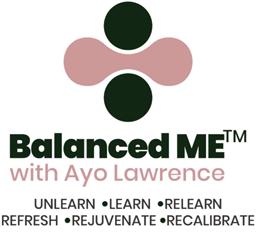




The beauty industry has evolved significantly over the years, but one of its most exciting transformations is happening now. Entrepreneurs from the Afro Diaspora are leading the charge in merging innovation with beauty, blending cultural heritage, technology, and business acumen to create thriving, sustainable ventures. This month, we spotlight the pioneers shaping the future of beauty and business.
For years, beauty standards have been predominantly shaped by Eurocentric ideals, often leaving out the diverse needs of people of African and Caribbean descent. However, a new wave of beauty entrepreneurs is rewriting the narrative. Brands like Fenty Beauty by Rihanna and UOMA Beauty by Sharon Chuter are revolutionizing the industry with inclusivity at the core of their business models. These brands focus on creating products that

cater to a wide range of skin tones, empowering individuals to embrace their natural beauty.
Innovation in beauty isn’t just about products—it’s also about technology. With the rise of beauty tech, personalized skincare and beauty routines are becoming more accessible than ever. Companies like Prose and Function of Beauty use artificial intelligence and data analytics to craft bespoke products tailored to individual needs. This shift toward customization allows businesses to meet specific customer demands while promoting greater inclusivity and personalization.
More than just selling products, many Afro Diaspora-led beauty businesses are actively driving social change. For instance, Beauty Beyond the Bloc,
founded by Olamide Olowe, is dedicated to creating economic opportunities for marginalized communities while promoting the sustainability of natural beauty products. These initiatives are helping break down barriers to access and creating pathways for financial empowerment.
As beauty and business continue to intersect, the future is bright for innovation. The beauty industry is no longer just about aesthetics; it’s about shaping an inclusive, sustainable, and empowering future.
The convergence of beauty and business is transforming the industry, and Afro Diaspora entrepreneurs are leading the way. Their commitment to authenticity, innovation, and social responsibility is a blueprint for the future of business and beauty.
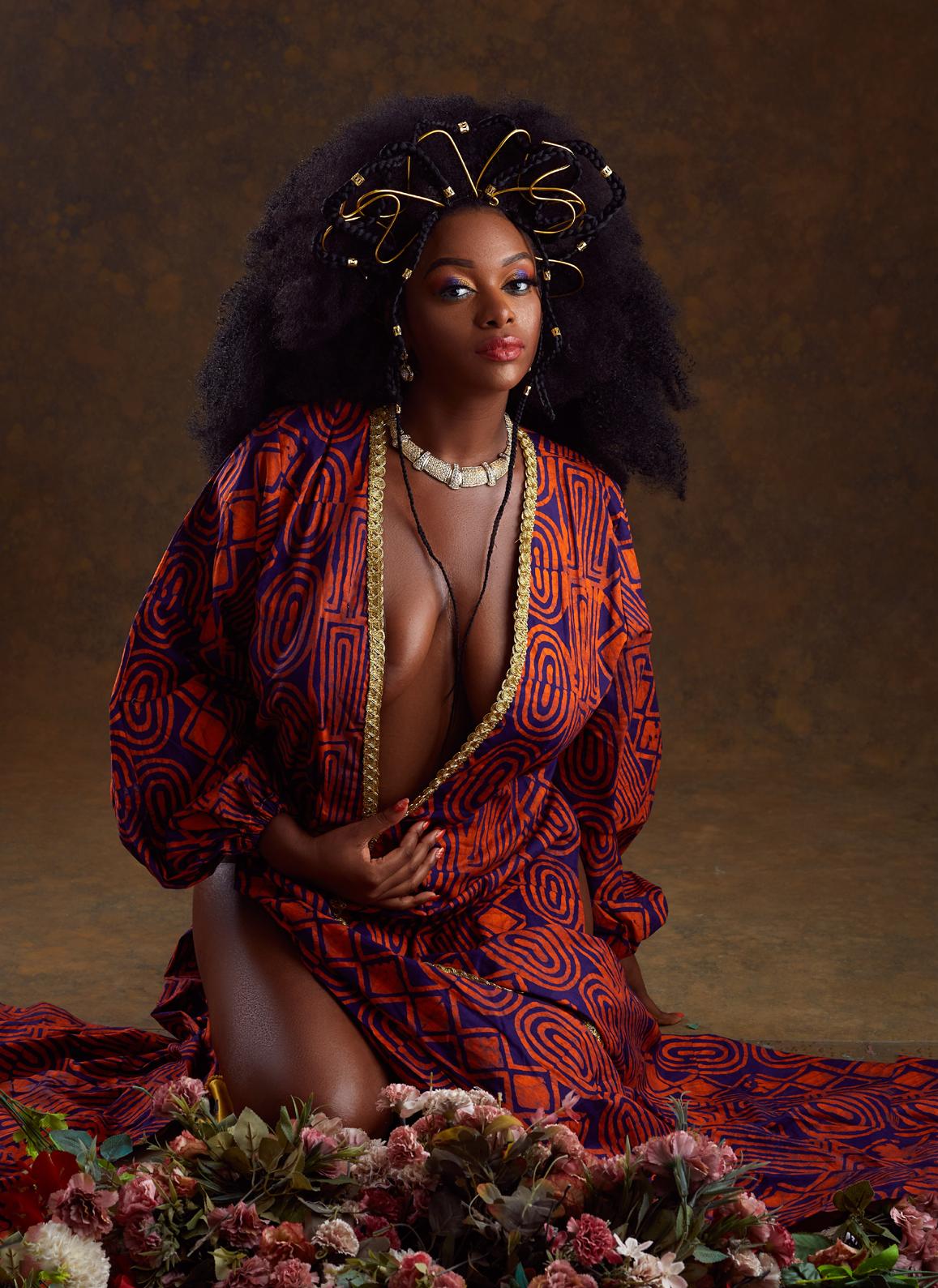

Transformation

FROM TORONTO TO GHANA: A RECONNECTION WITH ROOTS
Zakisha Brown, a Toronto-born hip-hop artist, has used music as a medium to explore self-discovery and cultural connection. Her journey, from the diverse cultural landscape of Toronto to the heart of Ghana, has allowed her to bridge the African and Caribbean diasporas, blending sounds that reflect both her Jamaican heritage and Ghanaian rebirth.
TORONTO’S CULTURAL INFLUENCE ON HER SOUND
Growing up in Toronto, Zakisha was immersed in a melting pot of Caribbean beats, African rhythms, and hip-hop. From an early age, music became an outlet for expressing identity, navigating emotions, and telling stories. Despite Toronto’s rich cultural scene, Zakisha felt a pull toward something deeper that would shape her artistry in the years to come.
A LIFE-CHANGING MOVE TO GHANA
In a life-altering decision, Zakisha
moved to Ghana, marking the first time in her family’s history that they set foot on the African continent. This experience provided a new perspective, helping her see the direct connections between her Jamaican and African roots. The rhythms, traditions, and communal spirit of Ghana resonated deeply, enriching her music and identity.
ELEVATING MUSIC THROUGH GHANAIAN INFLUENCE
In Ghana, Zakisha connected with industry icons like Reggie Rockstone, Fuse ODG, and Wodemaya. Her music evolved, blending hip-hop with Afrobeats, reggae, and highlife, creating a global yet personal sound. Her time in Ghana also reignited her passion for storytelling, focusing on uplifting and empowering both the Afro-Caribbean and African communities.
A GHANAIAN CITIZEN & LEGACY BUILDING
Zakisha embraced Ghana fully by becoming a Ghanaian citizen. This transition solidified her connection
to the country, allowing her to serve as a bridge between the Caribbean and African diasporas. Through her music and community work, Zakisha continues to inspire others to reconnect with their roots.
WHAT’S NEXT FOR ZAKISHA?
• Expanding her global reach with her unique blend of hiphop, Afrobeats, and reggae.
• Mentoring young artists in Ghana and the diaspora.
• Advocating for cultural reconnection and heritage exploration.
Zakisha’s journey exemplifies the power of embracing one’s heritage and the profound impact of music as a bridge between cultures.


Media is a powerful force for shaping perceptions and telling authentic stories. At the forefront of this movement is Gloria Babarinde— an award-winning broadcaster, international event compere, diction coach, author, and corporate communications strategist. With a passion for storytelling and a mission to amplify African voices, Gloria is a rising force in global media.
A proud alumna of Obafemi Awolowo University, Gloria’s love for storytelling emerged early. She has since built a dynamic career across real estate, branding, and media. As MD/CEO of Lait Media, she helps brands craft impactful narratives that build trust and visibility. Whether on stage or behind the scenes, Gloria brings professionalism, insight, and energy.
• Nigeria’s 25 Under 25 Award (2021) in Media & Communications.
• Founder, Lait Media, a fast-

rising firm amplifying African voices.
• Author, providing a practical guide for aspiring event hosts.
• Compere for High-Profile Events, including international summits and galas.
• Faith-Based Leader, building a strong community of praying media professionals.
Gloria plays a vital role in bridging the gap between Africa and its global diaspora. From moderating panels to curating content and building communities, she’s committed to celebrating and connecting African excellence across borders. Her Praying Media Personalities Group, active for over two years, exemplifies her blend of purpose and impact.
• Gloria’s future is bold and

visionary:
• Scale Lait Media across Africa.
• Expand her book’s reach, training more professionals.
• Grow her faith-driven media community.
• Explore global speaking platforms to champion African stories.
Gloria Babarinde is a woman of purpose—shaping African narratives, empowering media professionals, and building bridges across continents. Her work is a shining example of the power of passion and storytelling in transforming lives and industries.
CONNECT WITH GLORIA: Instagram: @thegloriababs
LinkedIn: Gloria Babarinde
Website: www.laitmedia.com
Email: laitmediaglobal@gmail.com
Phone: +2348169762332

Media is a powerful force for shaping perceptions and telling authentic stories. At the forefront of this movement is Gloria Babarinde—an award-winning broadcaster, international event compere, diction coach, author, and corporate communications strategist. With a passion for storytelling and a mission to amplify African voices, Gloria is a rising force in global media.
A proud alumna of Obafemi Awolowo University, Gloria’s love for storytelling emerged early. She has since built a dynamic career across real estate, branding, and media. As MD/CEO of Lait Media, she helps brands craft impactful narratives that build trust and visibility. Whether on stage or behind the scenes, Gloria brings professionalism, insight, and energy.
Nigeria’s 25 Under 25 Award (2021) in Media & Communications.
Founder, Lait Media, a fast-rising firm amplifying African voices. Author, providing a practical guide for


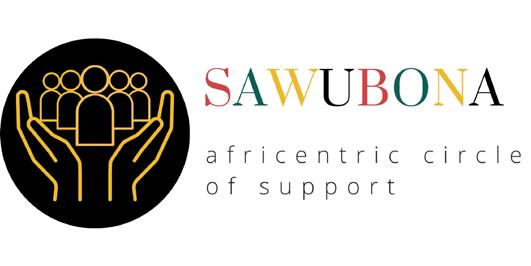
aspiring event hosts.
Compere for High-Profile Events, including international summits and galas.
Faith-Based Leader, building a strong community of praying media professionals.
Gloria plays a vital role in bridging the gap between Africa and its global diaspora. From moderating panels to curating content and building communities, she’s committed to celebrating and connecting African excellence across borders. Her Praying Media Personalities Group, active for over two years, exemplifies her blend of purpose and impact.
Gloria’s future is bold and visionary: Scale Lait Media across Africa.
Expand her book’s reach, training more professionals.
Grow her faith-driven media community. Explore global speaking platforms to champion African stories.
Gloria Babarinde is a woman of purpose— shaping African narratives, empowering media professionals, and building bridges across continents. Her work is a shining example of the power of passion and storytelling in transforming lives and industries.
CONNECT WITH GLORIA: Instagram: @thegloriababs
LinkedIn: Gloria Babarinde
Website: www.laitmedia.com
Email: laitmediaglobal@gmail.com
Phone: +2348169762332
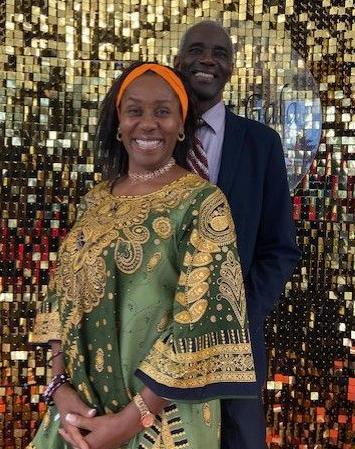



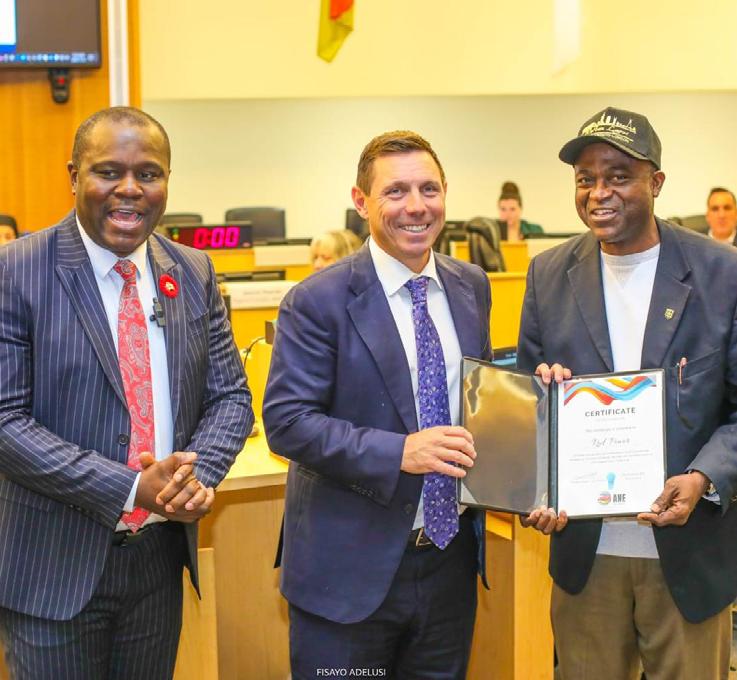


BUSINESS AND LEADERSHIP
BRIDGING TECH, BUSINESS, AND COMMUNITY IMPACT
Emmanuel Babatunde Adebola’s journey is a story of vision, innovation, and service. From pioneering IT in Nigeria to leading consulting projects in Canada, and now championing economic empowerment across the African and Caribbean diaspora, Emmanuel has made it his mission to drive change where it matters most.
FROM IT TRAILBLAZER TO GLOBAL CONSULTANT
• Tech Pioneer (1998, Nigeria) – Emmanuel helped shape Nigeria’s early tech infrastructure, ushering in the digital era.
• Consulting with Accenture – He led digital transformation projects across sectors, blending strategy with tech innovation.
• Empowering SMEs in Canada – Upon relocating, he shifted focus to small businesses, helping them grow and compete globally.
Emmanuel’s work extends beyond boardrooms. He has founded non-profits focused on:
• Financial literacy & entrepreneurship
• Mentorship for startups
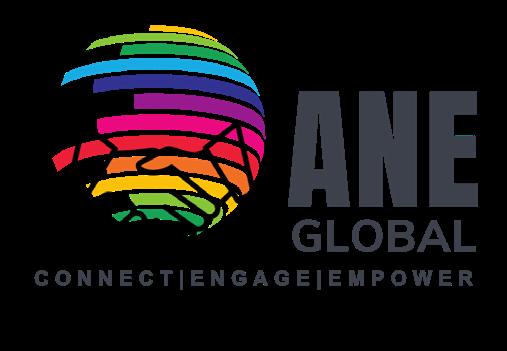
• Empowerment of African & Caribbean communities
Through workshops, coaching, and strategic programs, he helps bridge economic gaps and unlock generational wealth within the diaspora.
His consulting and advocacy efforts center on: Technology & Business Transformation Policy Development for Inclusive Growth Cross-continental Collaboration between African entrepreneurs and global investors
Tech drives economic growth – Emmanuel equips businesses to thrive in a digital world.
SMEs fuel economies – He champions small enterprises as engines of progress.
The diaspora is key to global development – He strengthens community ties across continents.
Launching new tech-entrepreneurship programs
Strengthening Canada-Africa business relations
Mentoring the next wave of changemakers
HIS MESSAGE:
“Success is not just what you build, but who you uplift along the way.”
CONNECT WITH EMMANUEL:
LinkedIn: Emmanuel Babatunde Adebola Instagram: @tundeadebola | @theaneglobal
Leadership and public service have long been the pillars of progress within society, shaping how communities grow, function, and thrive. From local government to global initiatives, the role of leaders in public service is vital for creating meaningful change. Across the Afro Diaspora, leaders in public service are driving social, economic, and political transformation by championing justice, inclusivity, and empowerment.
Public service is not just about holding a position—it’s about making a difference. Effective leaders in this field are often seen as advocates for the underserved, visionaries who are not only responsive to community needs but also proactive in creating sustainable solutions. Their leadership goes beyond politics, focusing on public welfare, education, healthcare, and social justice.
In the Afro Diaspora, leadership in public service has been instrumental in advancing the rights of marginalized communities. Leaders like Barack Obama, the first African American president of the United States, exemplified the power of leadership to transcend barriers and foster unity. His work continues to inspire a new generation of leaders committed to uplifting communities and pursuing equity.

On a local level, African and Caribbean leaders are making significant strides in transforming their communities. For example, London’s Mayor Sadiq Khan, of Pakistani descent, has prioritized affordable housing, health care, and addressing inequalities within the city. Similarly, leaders in African nations such as Kenya’s President Uhuru Kenyatta and South Africa’s Cyril Ramaphosa have worked to improve infrastructure, public health, and economic development, with the goal of benefiting all citizens.
Public service leadership also extends to activism and advocacy. Leaders like Ngozi Okonjo-Iweala, the Director-General of the World Trade Organization, break barriers in global governance while fighting for fair trade and economic equity for developing nations. Their

commitment to social justice enables them to create international platforms for dialogue, education, and positive change.
As challenges like climate change, inequality, and healthcare reform continue to shape the global landscape, the need for bold and compassionate leaders in public service has never been greater. These leaders are committed to driving positive change and creating a world that reflects the values of justice, equality, and sustainability.
Leadership in public service is about service, sacrifice, and vision. The next generation of leaders from the Afro Diaspora are poised to make lasting impacts, continuing the work of those before them while shaping a better future for all. The power of leadership lies in its ability to inspire, mobilize, and ignite change for the greater good

Throughout history, Black women have stood at the forefront of transformative change—often unsung, yet undeniably influential. From freedom fighters and educators to scientists, artists, and heads of state, Black women have shaped the course of history across continents, generations, and movements.

Black women have long been the backbone of resistance and resilience. Harriet Tubman, a conductor of the Underground Railroad, risked her life to lead enslaved people to freedom. Sojourner Truth, both an abolitionist and women’s rights activist, demanded equality at a time when neither race nor gender was respected in society.
In Africa, Yaa Asantewaa, Queen Mother of the Ashanti Empire, led a powerful resistance against British colonial rule in Ghana at the turn of the 20th century. Her legacy is a symbol of African women’s strength in leadership and warfare.
The U.S. Civil Rights Movement was shaped by powerful women like Rosa Parks, whose quiet courage
sparked a national movement, and Ella Baker, a behind-the-scenes strategist who mentored future leaders. In the Caribbean, Claudia Jones, a Trinidad-born journalist and activist, helped lay the groundwork for the Notting Hill Carnival in the UK while advocating for racial and gender equality.
Modern trailblazers like Shirley Chisholm, the first Black woman elected to the U.S. Congress and the first to run for president, broke political barriers. Today, figures like Kamala Harris, Mia Mottley of Barbados, and Ngozi OkonjoIweala continue that legacy on the global stage.
Black women have also transformed literature, science, and culture. From Maya Angelou and Toni Morrison, whose words uplift generations, to NASA mathematician Katherine Johnson, whose calculations helped
launch astronauts into space—these women not only made history, they rewrote it.
The legacy of Black women in history is not just about survival; it is about leadership, innovation, and power. Their contributions continue to inspire movements for justice, equity, and representation worldwide. As we reflect this April, let us honor the Black women who have paved the way—and those who continue to lead us into a bold and inclusive future.
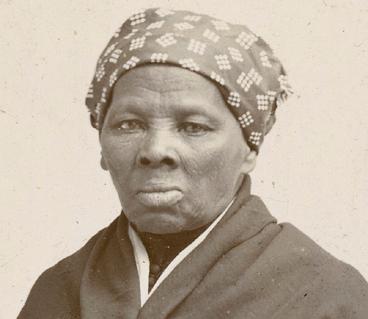

Dep. Mayor Councillor
Harkirat Singh (Mayor & City Council)

Lucy K.
Nyarwai
(Advisor, Equity Office)

Babu Nagalingam, B.A. Math (Chief of staff, Mayor’s Office)

Michael Okolie M (Advisor, Black Empowerment U)

Cindy-Ann Williams (Coord, Equity, Diversity & Inclusivity)
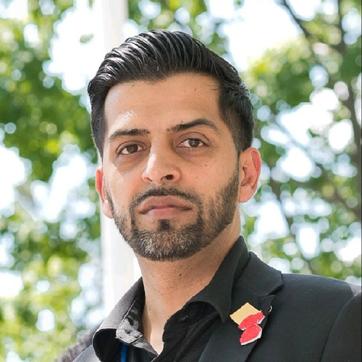
Muhsin Kermalli (Sr Adv, Anti-Islamophobia)

Paul Vicente (Mayor & City Council)
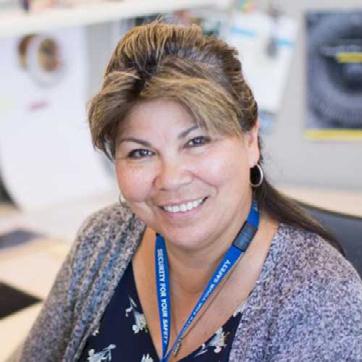
Johnston (Manager,Equity Office)

Travel is more than sightseeing— it’s a journey into history, identity, and connection. For members of the African diaspora, exploring heritage through travel becomes a powerful act of remembrance, education, and cultural affirmation.

From the historic streets of Gorée Island in Senegal, a haunting reminder of the transatlantic slave trade, to the vibrant marketplaces of Kumasi, Ghana, rich with Ashanti tradition, Africa offers immersive experiences that reconnect travelers with their ancestral stories. Countries like Ghana and Sierra Leone have opened their arms to descendants through initiatives like “The Year of Return” and citizenship pathways for the diaspora— turning tourism into a tool for healing and homecoming.
The Caribbean, too, holds deep ancestral ties. Islands such as Jamaica, Trinidad, Barbados, and Haiti are living museums of resistance, rhythm, and resilience. Heritage sites, from Maroon villages to Carnival celebrations, reflect centuries of African influence fused with local identity. Festivals, food, music, and spiritual traditions like Obeah and Vodou remind travelers of their enduring cultural roots.
Beyond the continent and the Caribbean, cities like New Orleans, Salvador (Brazil), London, and Toronto are global hubs of Afro-diasporic culture.
Whether it’s the jazz-soaked corners of the French Quarter or the vibrant Afro-Brazilian neighborhoods of Pelourinho, these destinations are alive with the echoes of history and modern creativity.
Heritage travel is also about sustaining culture—through support for Black-owned businesses, community-led tours, and visits to cultural institutions and museums. Experiences like slave castle tours in Cape Coast, storytelling sessions in the Caribbean, or art and heritage festivals across the U.S. and U.K. are both educational and empowering.
Travel becomes a form of activism when it bridges continents and communities. It fosters pride, understanding, and unity across the diaspora. As we explore our past, we empower our present— and shape a future rooted in heritage, identity, and global connection.
Where will your heritage take you next?


Wealth is more than income—it’s access, influence, security, and legacy. For women, especially women of African descent, financial empowerment is not only a personal journey but a transformative movement that ripples across families and communities.
Historically excluded from wealthbuilding systems, Black women have long turned resilience into resourcefulness. Today, they are among the fastest-growing groups of entrepreneurs, homeowners, and investors. From launching small businesses to leading corporate boardrooms, Black women are claiming their space in the financial landscape—often while navigating gender and racial wage gaps.
KEY PILLARS OF WEALTH EMPOWERMENT
• Entrepreneurship: More women are launching businesses that align with their values and communities— beauty brands, tech startups, wellness spaces, and consulting
firms are leading the charge.
• Financial Literacy: Programs focused on budgeting, investing, credit repair, and real estate are empowering women to make confident money decisions.
• Generational Wealth: Women are prioritizing estate planning, insurance, and wealth transfer to secure futures for their children and communities.
Black women are also reshaping wealth through community and collaboration—investing in co-ops, creating rotating savings clubs, and supporting one another through mentorship and shared networks. Platforms like crowdfunding, investment groups, and online education are helping women access capital and scale ideas.
Representation matters. Seeing Black women as CEOs, investors, financial coaches, and wealth strategists shifts the cultural narrative from survival to

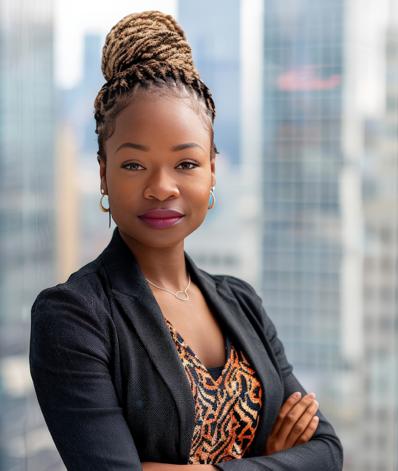
abundance. It’s about moving from “just getting by” to thriving—and doing so on one’s own terms.
A WEALTHY FUTURE IS A FREE FUTURE
Wealth is a tool for choice, voice, and power. As women build financial freedom, they unlock the ability to live authentically, support their families, and impact change.
Educate yourself. Uplift others. Invest with intention. Whether you’re saving your first $100 or launching a real estate portfolio, every step toward wealth is a radical act of empowerment.
Here’s to women rewriting the wealth story—boldly and beautifully.
In the face of climate change, resource depletion, and environmental injustice, sustainability is no longer a trend—it’s a necessity. Across the globe, communities of African descent are stepping up to lead in environmental stewardship, sustainable innovation, and ecological justice.
Sustainability means meeting today’s needs without compromising the ability of future generations to meet theirs. It’s about balancing environmental health, social equity, and economic strength. For many African and Caribbean nations, as well as diasporic communities, sustainability also means reclaiming traditional knowledge, protecting natural resources, and fostering resilience in the face of environmental inequities.
• Renewable Energy: Solar, wind, and hydropower projects are
reshaping access to energy in underserved regions. Entrepreneurs are creating scalable, clean-energy solutions from Lagos to Kingston.
• Sustainable Agriculture: Urban farming, organic agriculture, and agroforestry are connecting communities back to the land while combating food insecurity.
• Eco-Design and Fashion: Designers are reimagining clothing, beauty, and home goods using sustainable materials, upcycled fabrics, and zero-waste processes.
Young people across the diaspora are championing climate justice. From organizing climate strikes to launching green startups, Gen Z is demanding action and redefining what it means to be environmentally conscious.
Sustainability is deeply rooted in
African heritage—communal living, land respect, and holistic practices have long aligned with eco-friendly values. Today, artists, storytellers, and activists are blending culture and advocacy to inspire a new generation of changemakers.
The future must include everyone. Environmental justice means addressing the disproportionate impact of pollution and climate change on Black and Indigenous communities. It also means ensuring that green jobs, innovation, and funding are accessible to all.
The future is green, inclusive, and intersectional. By investing in sustainable practices today, we build a more equitable, prosperous, and livable world for tomorrow.
Let’s build a future that thrives— for people, for the planet, and for generations to come.




In the complex world of civil litigation, Mohamed A. Doli stands as a powerful advocate for those navigating the challenges of personal injury law. But beyond his sharp legal acumen, what truly defines him is a deeprooted sense of purpose—fueled by community, culture, and conviction.
A proud Somali-Canadian, Mohamed brings more than legal representation to his clients; he brings empathy, strength, and an
unshakeable belief in the value of hard work. His success is not accidental—it’s the result of perseverance, self-belief, and a tireless commitment to justice.
What distinguishes Mohamed is his unwavering connection to the people he serves. For him, community is not a backdrop— it’s the foundation. “I’ve found my identity through the strength and love of my community,” he often reflects. It is this bond that not only shaped his confidence
but also his vision of success: one that uplifts others, reflects shared values, and honors his heritage.
In Mohamed’s story, the Canadian dream comes alive— not as a cliché, but as a lived reality. He sees Canada as a place of profound opportunity, where one’s background is not a barrier but a badge of resilience. He says. “That freedom is rare—and it is uniquely Canadian.”
Mohamed’s path is marked not by conformity, but by courage. He has rejected the limitations of external labels and instead defined himself on his own terms: as a lawyer, a father, a Somali, a Canadian, and an immigrant. In doing so, he has not only taken control of his destiny but also inspired others to do the same.
Through his work, Mohamed A. Doli continues to champion the rights of individuals while embodying the strength that comes from knowing exactly who you are—and who you choose to become.


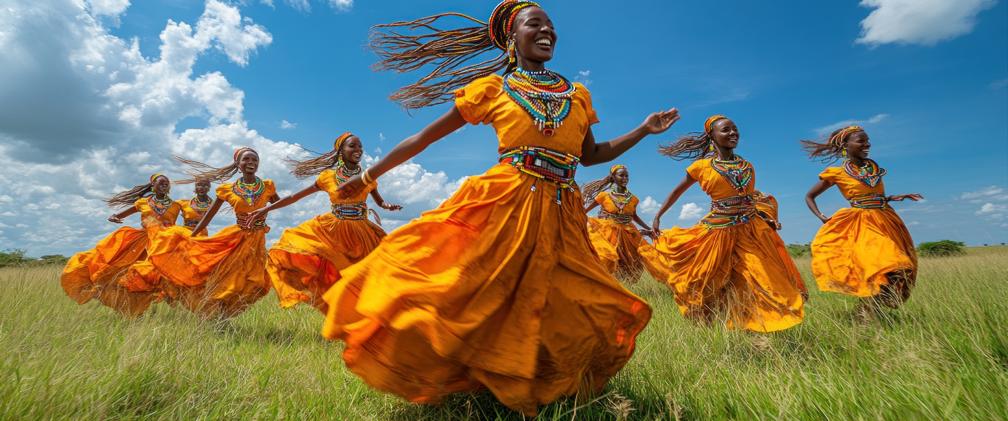
April honors the resilience and triumph of Senegal, Zimbabwe, Sierra Leone, and South Africa— each with a unique story of liberation, identity, and hope for the future.
SENEGAL – APRIL 4, 1960
Diplomacy Over Conflict
Senegal gained independence peacefully from France under the leadership of poet-president Léopold Sédar Senghor. Known for political stability and rich culture— from mbalax rhythms to Dakar’s art scene—Senegal thrives as a beacon of African pride.
“True independence is defining who we are.”
Joyeux Anniversaire, Senegal!
ZIMBABWE – APRIL 18, 1980
From Struggle to Sovereignty
After a brutal liberation war, Zimbabwe emerged from British
colonial rule in 1980. Despite economic hurdles, the nation’s strength lies in its history, education, and arts.
“Justice prevails when people stand together.”
Makorokoto, Zimbabwe!
SIERRA LEONE – APRIL 27, 1961
Freedom Rooted in History
With ties to freed African slaves, Sierra Leone’s independence from Britain was a historic milestone. Though scarred by civil war, its comeback highlights resilience and beauty.
“Even after the storm, the sun will rise again.”
Happy Independence, Sierra Leone!
SOUTH AFRICA – APRIL 27, 1994
The Fight for Freedom Freedom Day marks the end of
apartheid and the rise of democracy under Nelson Mandela. The day honors sacrifice, diversity, and the ongoing journey toward equality.
“Freedom is a continuous journey.”
Happy Freedom Day, South Africa!
FINAL REFLECTIONS
April reminds us that independence is more than a date—it’s a declaration of purpose, perseverance, and progress. As members of the diaspora, we celebrate with pride and recommit to supporting Africa’s ongoing rise.
Their victories are our victories.
Happy Independence and Freedom Month!

April is a powerful month dedicated to reflection, education, and advocacy. With multiple global and national observances, it invites us to engage with causes that shape lives and communities.
AUTISM AWARENESS MONTH
Promoting Inclusion and Understanding
April shines a light on autism spectrum disorder, urging early diagnosis, intervention, and greater inclusion in schools and workplaces.
Key Themes:
• Early intervention & support
• Inclusive education & employment
• Advocacy in underserved communities
SEXUAL ASSAULT AWARENESS MONTH (SAAM)
Empowering Survivors & Preventing Violence
This month calls for open dialogue about consent, bystander intervention, and survivor support.
Key Themes:
• Consent education
• Survivor advocacy
• Addressing violence in marginalized groups
FINANCIAL LITERACY MONTH
Building Wealth Through Education

Key Themes:
• Budgeting & saving
• Credit & debt management
• Investment and wealth-building
STRESS AWARENESS MONTH
Prioritizing Mental Well-being
Raising awareness of stress management and mental health disparities.
Key Themes:
• Coping strategies & self-care
• Mindfulness & work-life balance
• Mental health equity
KEY DATES IN APRIL
• April 2 – World Autism Awareness Day
• April 6 – International Day of Sport for Peace
• April 7 – World Health Day
• April 10 – National Siblings Day
• April 12 – Human Space Flight Day
• April 17 – World Hemophilia Day
• April 20 – Volunteer Recognition Day
• April 23 – World Book & Copyright Day
• April 25 – World Malaria Day
• April 28 – World Day for Safety & Health at Work
• April 29 – International Dance Day
FINAL NOTE
Financial empowerment is essential for stability and generational wealth—especially in underserved communities.
April is not just a calendar month—it’s a global call to act, learn, and uplift. Let’s use this time to promote change, support each other, and build stronger, more informed Communities .
